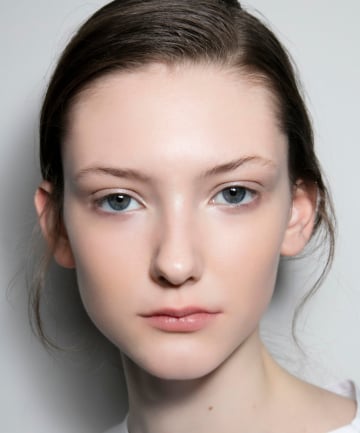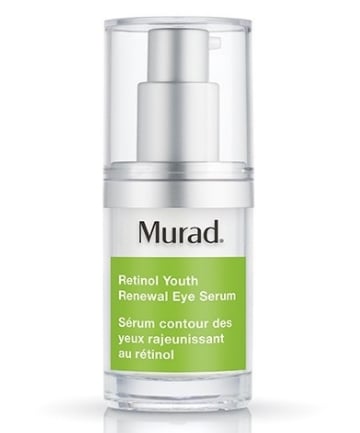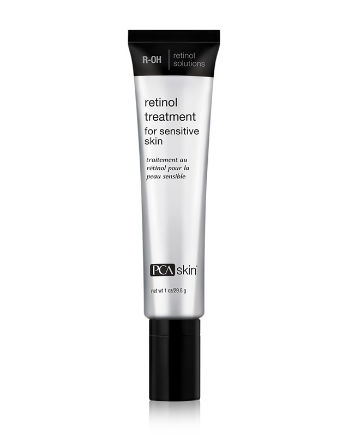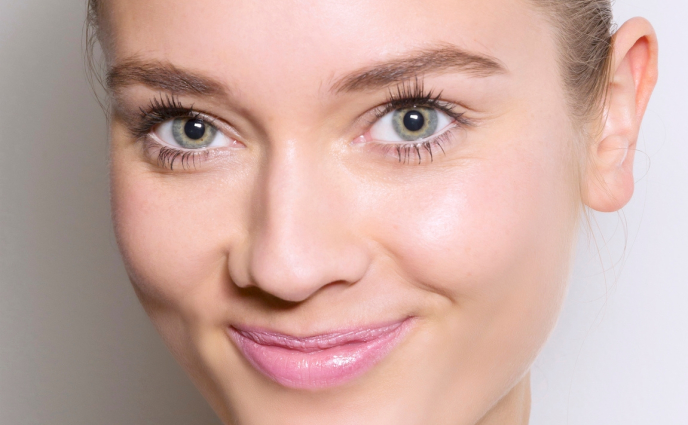While some skin care products, such as cleansers and moisturizers, are formulated for daily use, most retinol-containing products are not. In fact, overdoing it could leave you red, flaky and inflamed. Dr. Gervaise Gerstner, New York City-based dermatologist and skin care expert, says that the sweet spot for retinol use is once weekly, especially at the beginning. Once your skin becomes used to the ingredient, you can increase your use to every other day if tolerated. "Always start out with a pea-sized amount and increase your use slowly," she says.
Image via Imaxtree
Image via Imaxtree
The delicate eye area is particularly vulnerable to fine lines and wrinkles, especially around the outer corners (does the term "crow's feet" ring any bells?). While many people are on the hunt for crow's feet cures, they often assume that this area is too sensitive for retinol use. This is untrue, according to Austin-based dermatologist Dr. Ted Lain, who explains that this area can actually benefit the most from the collagen-producing effects of retinol, which has the potential to work wonders on fine lines and dark circles. "In order to avoid irritation, mix retinol with a small amount of moisturizer and apply a thin layer to minimizes the irritation and redness," he says. You can also find retinol-based eye creams, such as Murad Retinol Youth Renewal Eye Serum, $85, that are specially formulated for use on the eye area.
Buy now
Buy now
Though it's true all that extra sun exposure means you have to step up your sun protection game for summer, it's not true that you have to take a break from your favorite retinol treatments. "Many people worry that retinol will make their skin doubly sensitive to the sun, however, normal sun-protection measures, such as sunscreen that contains at least SPF 30, as well as wearing sun-protective clothing and wide-brimmed hats are sufficient to protect the skin, even when retinol is being applied," says Dr. Lain.
Image via Imaxtree
Image via Imaxtree
Due to its perception as a "harsh" ingredient, lots of people with sensitive skin assume that they can't use retinol. Happily, that's not the case, according to Dr. Rachel Nazarian, dermatologist at Schweiger Dermatology Group in New York City. "People with sensitive skin can incorporate a retinol into their regimen, but should start off more cautiously, mixing a little bit with their moisturizer and applying it twice weekly," she says. "Even at a modified schedule, consistent use of your retinol will lead to great results!"
That said, if your skin is reacting strongly to retinol use, try to cut back on how often you apply your product. If the irritation persists, seek the advice of your dermatologist, as he or she may be able to prescribe or suggest a different product. It's also worth noting that there are even some retinol products that are specially formulated for sensitive skin, such as PCA Skin Retinol Treatment for Sensitive Skin, $109.
Buy now
That said, if your skin is reacting strongly to retinol use, try to cut back on how often you apply your product. If the irritation persists, seek the advice of your dermatologist, as he or she may be able to prescribe or suggest a different product. It's also worth noting that there are even some retinol products that are specially formulated for sensitive skin, such as PCA Skin Retinol Treatment for Sensitive Skin, $109.
Buy now
While, theoretically, this is true, in order to yield continuous results, you should maintain steady retinol usage. You can't, for example, use retinol for a few months and then stop once the beneficial effects are realized — this will leave you in the same place you started months down the line. "Collagen production and other skin improvements are seen as soon as a few months after usage, but continue to improve," says Dr. Lain. "Stopping prematurely allows the aging process and sun damage to quickly reverse these benefits."
Image via Imaxtree
Image via Imaxtree









